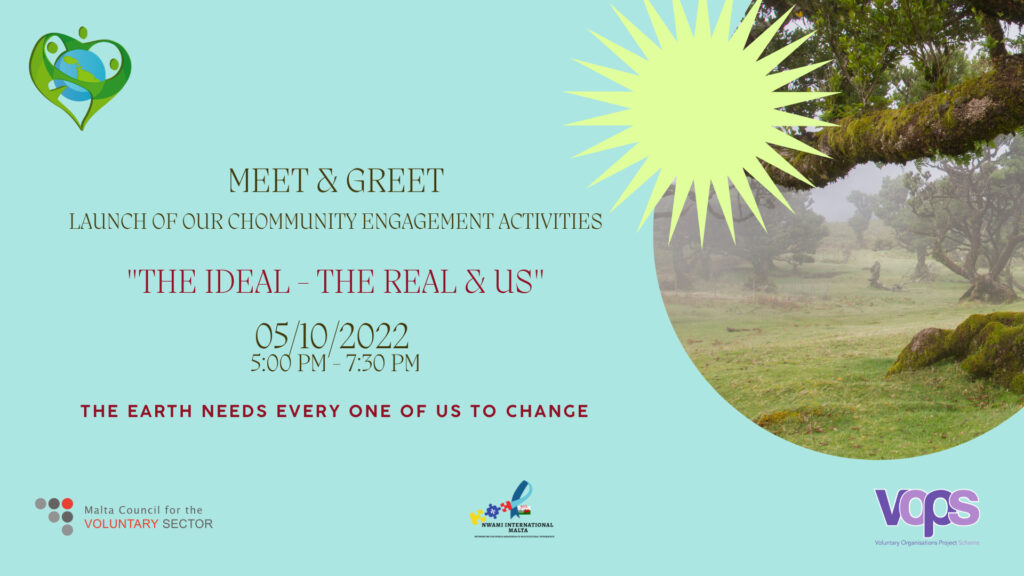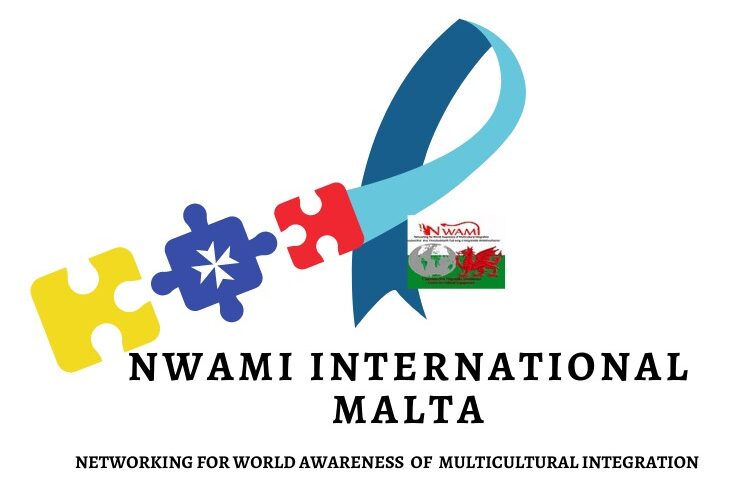5/10/2
Our series of Community Engagement Activities kicked off with a Meet & Greet launch with the theme The Ideal — The Real and Us which brought together diverse stakeholders to discuss social cohesion in relation to environmental goals. The participants included, among others, representatives of local and migrant communities, together with other entities such as the Anglican Church and the Commonwealth Countries League.
The premise of the meeting and the discussions that ensued was that social cohesion can help as a tool for resilience before, after and during extreme events related to our globally changing environment, such as in the case of extreme weather, pollution and scarcity of natural resources. Social cohesion, even as defined by Canadian sociologist Dick Stanley, includes society’s willingness towards cooperation and is thus not meant to stratify communities. This cohesion is possible with the necessary communication, funding and organisational tools required to foster cooperative networks in a community.
With this definition in mind, the discussion’s main highlights centred around the creation of a policy context for the creation of community resilience in the light of the effects of climate change. One of the main themes was indeed how the principle of social cohesion, as the willingness and capacity to cooperate, is practiced in Malta’s communities. The discussion sought to identify the fundamental bonds that join communities in Malta, such as language and values, amongst many others: one particular participant, a hospital care worker, remarked that diversity only works when there are common values that can make communities bond.
This was shown to be especially relevant for Malta’s low-income communities and how their social cohesion could be affected by climate change. Whilst some participants observed that cohesion is generally lacking in Malta, the discussions yielded many positive suggestions and conclusions, having been processed after reflections frequently starting from the participants’ life stories. The general feeling about climate change was discussed even on a global level and how this necessarily also affects Malta, and in turn focused on how individuals and communities can take daily actions to cushion personal and collective environmental impacts.
Emphasis was made on different aspects of personal action towards fighting for planet’s future — waste reduction; conscious shopping, spending and saving; tackling food waste and garbage separation; novel ways of reducing electricity and water consumption. Most of these elements also touched on the concept of the circular economy, and underlying all these initiatives was the need to educate communities, especially through showing and demonstrating, in order to create a common bond based on environmental awareness.
Specific suggestions were also aplenty, including use of free public transport; collective flower gardens or allotments for the community; events, such as cleanliness competitions at local council level that bring the community together for common goals; but also wide ranging policy suggestions on the greater need for solar and wind energy, which showed that citizens and communities have an interest in major solutions on a national level. Feedback from the event reflected this excellent opportunity to share stakeholders’ thoughts on the matter, even with important notions such as the need for interfaith education in schools to strengthen community bonds, and also the proposal to enshrine the safeguarding of the environment in Malta’s constitution.

